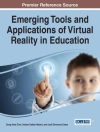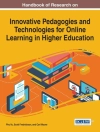When teacher evaluations are fair, everyone wins.
Poor evaluation systems don’t just hurt teachers—they hurt students, too. That’s why America can’t afford to wait for the teacher-evaluation problem to be solved. To provide balanced, accurate, and rigorous evaluations that take into account each teacher’s particular circumstances, only one system can work: evidence-governed collegial judgment.
As states and schools scramble to find workable responses to accountability mandates, well-informed educators can make key contributions. Start here with
- A discussion of common evaluation systems, including testing, value-added models, and observations
- Analysis of federal guidelines and state responses
- Action steps teachers and school leaders can take to influence policy
- A clear rationale and strategies for implementing a teacher evaluation model based on human judgment
Evaluating America’s Teachers demonstrates that the vision is possible: effective teacher evaluations that benefit schools as a whole.
’Teachers, administrators, and policy makers rejoice! Here is a single book, from a nationally recognized scholar, that makes sense of the issues involved with the evaluation of teachers.’
—David C. Berliner, Regents’ Professor Emeritus
Arizona State University
’Once again Jim Popham has brought insight and clarity to a complex topic that only a person of his stature and expertise could provide.’
—Robert J. Marzano, CEO
Marzano Research Laboratory
’In an effective and diplomatic manner, Jim suggests concrete ways policymakers, along with local school leaders and teachers, can make sure our students are protected from summative teacher-evaluation systems that do more harm than good. No one should make policy at any level or strive to build a defensible teacher evaluation system without studying this book.’
—Rick Stiggins, Retired Executive Director
Assessment Training Institute
Innehållsförteckning
Preface
Acknowledgments
1. What Underlies the Tightening of Today′s Teacher-Evaluation Programs?
What Uncle Sam Wants
A Federal Vision of Teacher Evaluation
What Could Go Wrong?
Chapter Implications for Three Audiences
2. Human Judgment: Needed or Not?
Human Judgment′s Role
Evaluation Basics
What about the Evaluation of Teachers?
Judgment-Requisite Choices
Chapter Implications for Three Audiences
3. Defensible Teacher Evaluation
The Wonders of Whereas
Why Use a Weighted-Evidence Judgmental Approach to Teacher Evaluation?
A Weighted-Evidence Judgment Evaluative Survey
Who Are the Judges?
Chapter Implications for Three Audiences
4. Evidence from Standardized Tests
Key Testing Tenets
Why We Test
A Psychometric Blessed Trinity
Standardized Test- Two Tribes, Two Tasks
Traditional Test-Building and Its Off-Task Allure
The Origins of Traditional Educational Testing
Dealing with Effective Instruction
Ensuring Score-Spread from the Get-Go
Instructional Sensitivity as a Requisite
Returning to Validity
Evidential-Weight Guidelines
Chapter Implications for Three Audiences
5. Evidence from Classroom Assessments
Staking Out the Nature of ’Classroom Assessment’
A Quest for Evidence of Student Growth
Formative and Summative Applications
Enhancing the Quality of Classroom-Assessment Evidence
Evidence of a Teacher′s Instructional Ability
What′s Assessed
The Traditional Psychometric Triplets
Following Test Development, Improvement, and Scoring Rules
Have Teachers Played it Straight?
Evidential-Weight Guidelines
Chapter Implications for Three Audiences
6. Evidence from Classroom Observations
What′s Distinctive about Classroom Observations?
Observations Versus Ratings
Playing the Odds: Observation of Instructional Means
An Observational Reality: The Mysterious Middle Group
Getting the Most Evaluative Mileage Out of Classroom Observation Evidence
Two Widely-Used Observation Procedures
Danielson′s Framework for Teaching
The Marzano Model
Evidential-Weight Guidelines
Chapter Implications for Three Audiences
7. Evidence from Ratings
Rooting Around with Ratings
Lurking Comparisons
Amalgam Judgments
Three Flavors of Bias
Administrators′ Ratings
Students′ Ratings
Making Ratings Righteous
The Rating Form
Rater Preparation
The Old and the New
Evidential-Weight Guidelines
Chapter Implications for Three Audiences
8. Evidence from Sundry Sources
Alternative Sources of Evidence for Evaluating Teachers
Academic Achievements
Changes in Students′ Affect
Lesson Plans
Opportunity-to-Learn Student Surveys
Parental Engagement
Parent Ratings
Professional Development
Ratings by Colleagues
Student Interviews
Teacher-Made Tests
Teachers′ Self-Ratings
Augmentation or Obfuscation?
Evidential-Weight Guidelines
Chapter Implications for Three Audiences
9. Mission Possible?
Weighted-Evidence Judgment of Teachers: A Reprise
What To Do- And How?
Chapter Imlpications for Three Audiences
Responding to a Subtitle
Index
Om författaren
W. James Popham, professor emeritus at University of California Graduate School of Education and Information Studies, has spent the bulk of his educational career as a teacher. His first teaching assignment, for example, was in a small eastern Oregon high school where he taught English and social studies while serving as yearbook advisor, class sponsor, and unpaid tennis coach. That recompense meshed ideally with the quality of his coaching. Most of Dr. Popham′s teaching career took place at UCLA where, for nearly 30 years, he taught courses in instructional methods for prospective teachers as well as courses in evaluation and measurement for graduate students. At UCLA he won several distinguished teaching awards. In January 2000, he was recognized by UCLA Today as one of UCLA’s top 20 professors of the 20th century. (He notes that the 20th century was a full-length century, unlike the current abbreviated one.) In 1992, he took early retirement from UCLA upon learning that emeritus professors received free parking. Because at UCLA he was acutely aware of the perishability of professors who failed to publish, he spent his non-teaching hours affixing words to paper. The result: 30 books, 200 journal articles, 50 research reports, and 175 papers presented before research societies. Although not noted in his official vita, while at UCLA he also authored 1, 426 grocery lists. His most recent books are Classroom Assessment: What Teachers Need to Know, 6th Ed. (2010) and Assessment for Educational Leaders (2006), Allyn & Bacon; The Truth About Testing (2001), Test Better, Teach Better (2003), Transformative Assessment (2008) and Instruction that Measures Up (2009) ASCD; America’s “Failing” Schools (2005) and Mastering Assessment (2006), Routledge; and Unlearned Lessons (2009) Harvard Education Press. He encourages purchase of these books because he regards their semi-annual royalties as psychologically reassuring. In 1978, Dr. Popham was elected to the presidency of the American Educational Research Association (AERA). He was also the founding editor of Educational Evaluation and Policy Analysis, a quarterly journal published by AERA. A Fellow of the Association, he has attended each year′s AERA meeting since his first in 1958. He is inordinately compulsive. In 1968, Dr. Popham established IOX Assessment Associates, an R&D group that formerly created statewide student achievement tests for a dozen states. He has personally passed all of those tests, largely because of his unlimited access to the tests’ answer keys. In 2002 the National Council on Measurement in Education presented him with its Award for Career Contributions to Educational Measurement. In 2006 he was awarded a Certificate of Recognition by the National Association of Test Directors. In 2009, he was appointed to be a board member of the National Assessment Governing Board. Dr. Popham’s complete 44-page, single-spaced vita can be requested. It is really dull reading. School Leadership Briefing Interview












